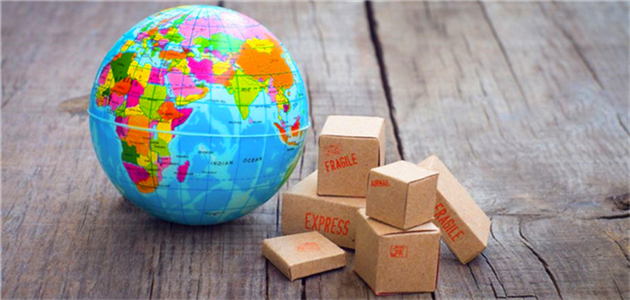China, South Korea and Australia free trade agreement came into effect yesterday, which goods can be duty-free immediately

Yesterday, the China-Australia and China-Korea Free Trade Agreements formally came into effect. The first step of tax reduction was implemented on the day it took effect, and the second step of tax reduction was implemented on January 1, 2016.
From the end of the year to next year, there will be two tariff adjustments. Is it safe to buy during the New Year's Day? The reporter combed and found that among the imported goods from Australia and South Korea on the 20th, there were 2402 and 1,649 goods with zero tariffs, including lobster products from Australia, canned abalone, Polaroid cameras, etc.; and American ginseng from South Korea. Tariffs on Gastrodia and Gastrodia were also reduced to zero.
As for the closely watched Australian milk powder, Australian steak, and Korean cosmetics, there is no immediate tax exemption. Among them, Australian formula milk powder will be completely tax-free after 4 years, and Australian steak will have to wait 10 years to be completely tax-free.
Some experts pointed out that although the scope of this tax reduction is wide, the tax reduction process is relatively long, especially for products from South Korea. In a short period of time, the preferential tax reduction will not be immediately reflected in the terminal price. It seems that it will take some time to buy and buy happily.
Canned abalone, etc. immediately cancel tariffs
The reporter combed through the tax rate tables in the two free trade agreements between China and Australia and China and South Korea, and found that on the day when the two agreements took effect on December 20 this year, a total of 2,402 tax items in China and Australia had zero tariffs (of which the current tax rate for 692 products was Zero), including lobster products, crab products, canned abalone and other commodities. The current tariff for lobster products, canned abalone, etc. is 5%, that is to say, the current comprehensive tax rate (comprehensive tariff, value-added tax rate) is 22.85%, and after the tariff is exempted, only 17% of the value-added tax will be paid. Assuming that the duty-paid price of a canned abalone is 100 yuan, the price before tax exemption is 122.85 yuan plus tax, and the price after duty-free is 117 yuan, which is 5.85 yuan cheaper.
Tariffs on fresh lobster, king crab, and abalone were not immediately reduced to zero, but the overall tax burden also fell by 2% to 3%. As for the infant formula milk powder that overseas buyers care about, the tariff will be reduced from 15% to 12% on the day the agreement takes effect, and the tariff will be reduced to 9% in January next year. That is, next year, the comprehensive tax burden of imported formula milk powder imported by Australia will be reduced from the current 34.55% to 27.53%, which is a 7.02% reduction, and it will take 4 years to completely abolish the tariff.
Tariffs on Australian beef, steak (12% before the implementation of tariffs), butter, cheese, etc. will be completely abolished after 10 years.
Individual Korean cosmetics will first reduce tax by 1%
Regarding the China-Korea Free Trade Agreement, there are 1,649 tariff items with zero tariffs after the agreement takes effect on the 20th (691 of which are currently zero tariffs), including various Chinese medicinal materials produced in South Korea, such as gastrodia, American ginseng, Codonopsis, etc., and Various agricultural products such as soybeans and oats produced in Korea.
As for the most popular shampoo and bath products and individual cosmetics and skin care products, the tax will be reduced by 35% or 20% within 5 years. For some cosmetics and skin care products, the rate of tax reduction in the first and second years was not high. The tariff was only reduced from 6.5% to 6.2%, and in the second year to 5.9%, which was only 1% lower than the comprehensive tax burden before the agreement took effect .
Korean Korean ginseng, which has high demand in China, is not within the scope of the tax reduction, and the existing 25% tariff remains unchanged. As for specialty foods, the tariff on Korean seaweed will be reduced from the current 15% to zero within 10 to 20 years, and the current 25% tariff on kimchi will be eliminated within 20 years. In addition, nearly 90% of aquatic products such as cod and frozen crabs will gradually eliminate tariffs within 10 years.
Supermarket
Digest inventory first, price adjustment is difficult to synchronize with tariffs
After the tax reduction, how will the supermarket terminal price change? The reporter visited and found that it would take some time for the tariff cut to be reflected in the terminal link. "We are all suppliers regularly supplying goods, and now suppliers are still supplying stocks from before, so there will be no price cuts in the terminal sales link during the New Year's Day." A staff member of a large foreign-owned supermarket chain said that tariffs have been reduced in the past. According to the law, at least you have to wait for the sale of the batch of goods previously imported from the supplier. This statement was recognized by the insiders of two other large supermarkets. A cross-border e-commerce leader told reporters that the tariff reduction might not have much impact on the terminal prices of imported goods.
expert
It covers a wide range, but tax reduction is a long-term process
"Although the scope of tax reduction is wide, tax reduction is a long-term process." As a foreign trade and customs consultant, Zhou Junwei told reporters that during the 20-year transition period after the entry into force of the China-South Korea Free Trade Agreement, both China and South Korea both have 90% or more. The products achieve zero tariffs, but the tax reduction process is very long. For example, some household appliances will cancel the current 15% tariffs within 10 years. Zhou Junwei believes that for the time being, the preferential tax reduction will not be immediately reflected in the terminal price. This is mainly because there is a high degree of overlap between the domestic industries of China and South Korea. The immediate removal of tariffs will have a greater impact on the industries of the two countries. Shock.
future
The price of beef and mutton imported may be cheaper than domestically produced
After the China-Australia Free Trade Agreement takes effect, 96.8% of China’s tax items will achieve zero tariffs, and all of them will adopt a simple and direct tax reduction method of linear tax reduction. Among them, 95% of the tax items that complete the tax reduction within 5 years will be reduced, and the remaining products will be reduced. The longest transition period does not exceed 15 years. In other words, in addition to a small number of products such as wheat, soybeans, peanut oil, etc., most products originating in Australia will enjoy zero tariff treatment when entering China. "Due to the industrial advantage, imported Australian beef and mutton on the domestic market may be cheaper than domestic beef and mutton." Zhou Junwei said.






